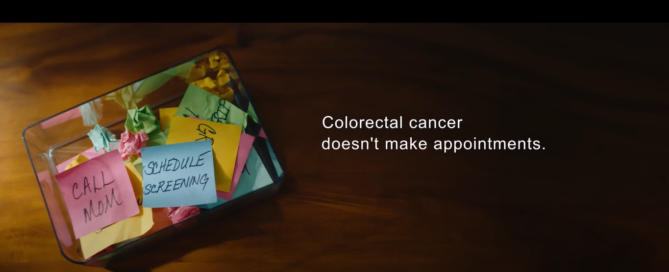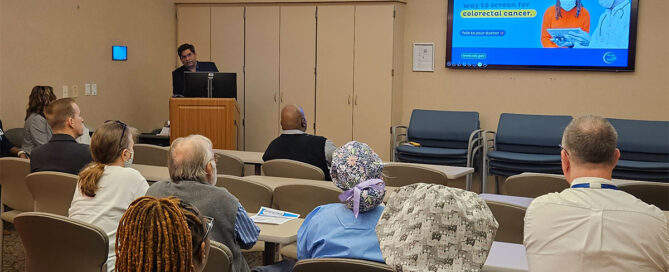Bringing awareness to Colorectal Cancer
In recognition of Colorectal Cancer Awareness Month, Sentara Obici Hospital held a program to help educate and break the stigma around colorectal health. In partnership with Richmond-based nonprofit Hitting Cancer Below the Belt, Sentara held [...]
 You have enough to worry about these days. You don’t need to add colorectal cancer to the list. On-time screening tests can find polyps before they turn into cancer. Talk to your doctor and schedule a colorectal cancer screening test. Gallery
You have enough to worry about these days. You don’t need to add colorectal cancer to the list. On-time screening tests can find polyps before they turn into cancer. Talk to your doctor and schedule a colorectal cancer screening test. GalleryYou have enough to worry about these days. You don’t need to add colorectal cancer to the list. On-time screening tests can find polyps before they turn into cancer. Talk to your doctor and schedule a colorectal cancer screening test.
You have enough to worry about these days. You don’t need to add colorectal cancer to the list. On-time screening tests can find polyps before they turn into cancer. Talk to your doctor and schedule a colorectal cancer screening test.
Colorectal cancer is a disease in which cells in the colon or rectum grow out of control. Sometimes it is called colon cancer, for short. The colon is the large intestine or large bowel. The rectum is the [...]
 Getting screened for colorectal cancer may not sound pleasant, but it can actually prevent cancer. There are several screening test options; some you can even do from home. Talk to your doctor to decide which is best for you. Gallery
Getting screened for colorectal cancer may not sound pleasant, but it can actually prevent cancer. There are several screening test options; some you can even do from home. Talk to your doctor to decide which is best for you. GalleryGetting screened for colorectal cancer may not sound pleasant, but it can actually prevent cancer. There are several screening test options; some you can even do from home. Talk to your doctor to decide which is best for you.
Getting screened for colorectal cancer may not sound pleasant, but it can actually prevent cancer. There are several screening test options; some you can even do from home. Talk to your doctor to decide which is best for you.
For this test, the doctor puts a short, thin, flexible, lighted tube into your rectum. The doctor checks for polyps or cancer inside the rectum and lower third of the colon. How often: Every 5 years, or every [...]






